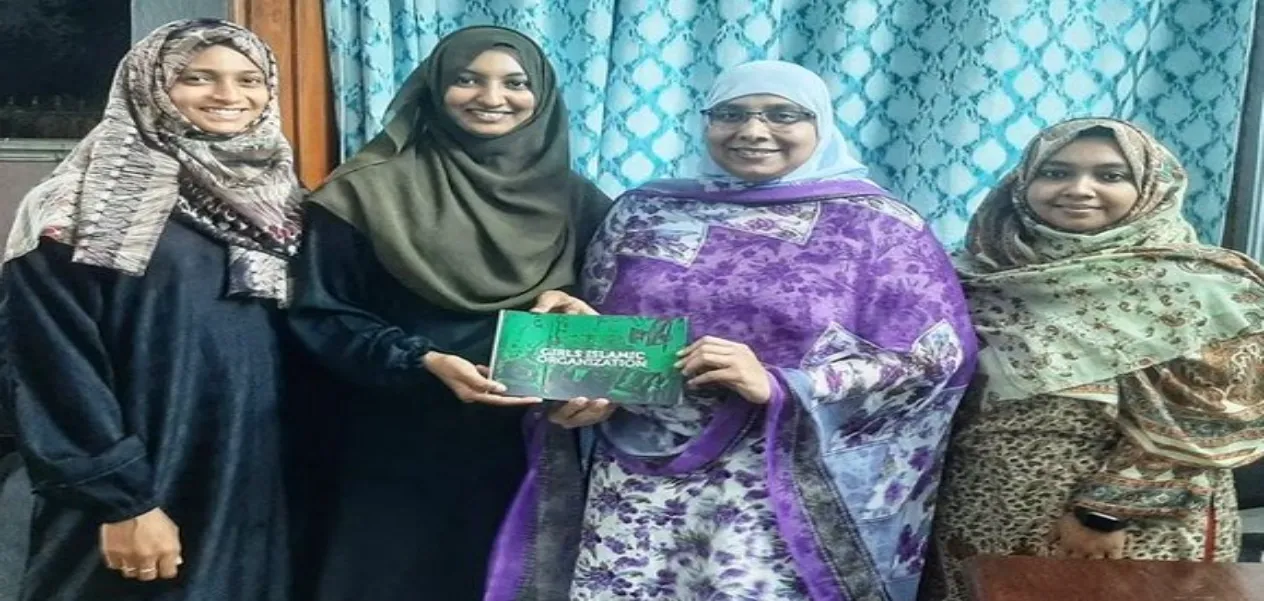.jpg)
Ratna G. Chotrani/Hyderabad
I met her in the small interval between her making intense arguments for her client, mostly kin of the custodial deaths, before the judge to her sessions at the Mohalla family counseling centres. Afsar Jahan works almost without taking a break from her hectic schedule as a human rights lawyer and women's rights activist. Besides her routine legal work, she provides free legal aid at the Mohalla Family Counseling Centre and on the weekends works in her office.
From fighting for justice in landmark cases, Uzma Afreen vs Parveen Begum which was for the custody of a child, to fighting for Women’s rights and marginalized prisoners, Afsar Jahan is one of the most honest and powerful voices for the empowerment of women in Hyderabad, Telangana.
She is also an active member and the legal head of the All India Milli Council Telangana Chapter.
Advocate Afsar Jahan’s life has been a saga of unwavering determination and groundbreaking achievements. She not only shattered the glass ceiling in the Law Courts but also redefined social activism in India.
Afsar Jahan told Awaz-the voice that she has considered herself to be two things: an optimist and a problem-solver. Neither of these happened by accident. Growing up in a social justice family, she learned these qualities (and so many others) from the extraordinary women in her life, her mother and her aunts as well as her father whom she hero worships.
For Afsar Jehan, it began in 1996, when she was a political science student at St Pious Hyderabad. People from far and near approached her father who played the role of an arbitrator to many and helped parties to resolve their mutual disputes issues amicably.
Her mother a teacher also contributed to the parties arriving at a compromise by giving her opinion during the final calibration becoming the point for reconciliation.
Afsar Jahan studied law and it was during this phase that she was married and even carried her child. All through her mother stood like a rock to back her up.
Today her life has changed - from a difficult phase of life she is today presiding over platforms, and is a name to reckon with in her profession. She has come up from her humble beginnings to become a celebrity in her own right.
 Afsar Jahan with women who work for her Moholla counselling
Afsar Jahan with women who work for her Moholla counselling
Women struggling with stumbling business, messy divorce, or the loss of a job, come to Afsar Jahan and her network of women helps them take charge and control of their lives.
As a member of the Telangana Marriage Counselling Centre for Minorities at the Haj House, she worked for the rights of the underprivileged. However, she found other members of the Board of the Centre were misogynists. She faced resistance and even threats from some of them.
Afsar Jahan didn’t succumb to the intimidation; she opened her Mohalla Family counseling center.
She also provides free legal aid in cases of family discord issues at these centers.
She collects Zakat (money given by Muslims for charity) and uses it to pay off the fines and bail money of the marginalized prisoners to get them freedom.
She classifies the marginalized prisoners as those who are either first-time offenders or petty offenders and they commit offenses to keep their body and soul together.
She explained to me the four Indian laws that can help women fight the various kinds of violence they experience and are useful in crimes like domestic violence to sexual assault. “The law isn't the deterrent; it's our society and institutional structures that bear down on women that are the real deterrent,” she says.
“Every woman should know the Protection of Women from Domestic Violence Act, 2005, a special l law that protects against all forms of violence and abuse; be it physical, sexual, verbal, emotional and/or economic. One of the reasons many women are unable to escape abusive or violent relationships is that they have no safe space to turn to - the matrimonial home is not theirs and they're no longer welcome in their natal home.
“Under Domestic Violence law, not only can you seek an injunction against the violence, but it also recognizes the woman's right to reside in the matrimonial or shared household, whether or not you have any rights to the concerned property. We still have a long way to go to make our laws gender-just. In the meantime, this is your go-to law for protection.”
Afsar Jahan is not the one to stick to one type of work. She is presently working on prison reforms like the badly needed decongestion of jails. She accomplished this by securing the release of the marginalized prisoners. She also offers help to those fighting for the rights of those who have died in custody.
She also serves as the legal head of the All India Milli Council Telangana Chapter. Earlier, she served as Assistant Government pleader for Industries and Mines and the Department of Energy at the High Court for the State of Telangana for six years.
She says he meets women from all classes and sections of society who are clueless about their rights in property, their bank accounts, and assets owned by their families as these are either controlled by their fathers or husbands. She says it is important to know one’s property rights and the laws that one is married into. She therefore provides counsel to help women in distress.
ALSO READ: Soul and spirit of the Bharat infused into 3 key criminal laws: Dr Adish C Aggarwala
Afsar Jahan’s story makes one believe how a single human being can have a profound impact on society. Before signing off, she says, “We need laws that establish equality and justice and which recognize diverse forms of relationships.”
